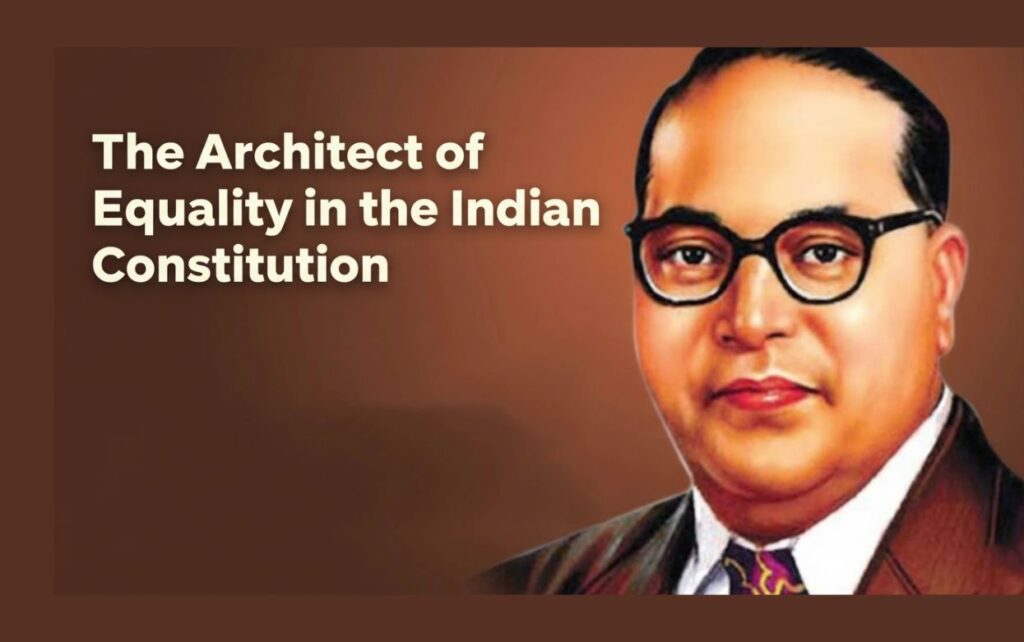Trending

The 14th of April is the birth anniversary of Bharat Ratna Dr. Babasaheb Ambedkar, a major figure in Indian history. This yearly celebration of social equality, justice, and intellectual revolution honours Ambedkar’s legacy as more than just a legal expert or politician—he was the principal architect of contemporary India’s rebuilding. Under his leadership, the Indian Constitution was drafted, incorporating the ideas of equality, liberty, fraternity, and justice while also tackling long-standing concerns such as untouchability, casteism, and inequity.
The purpose of this article is to explore Dr. Ambedkar’s essential concepts of equality as enshrined in the Constitution and transmit those values down to future generations, assuring a sustained commitment to a just and inclusive society.
The Indian Constitution was the culmination of decades of struggle, social movements, and accumulated experiences, not a snap choice. Under British rule, various laws were enacted in India, but they did not recognise fundamental rights or establish social equality. The Government of India Act of 1935 granted limited autonomy, but there was widespread clamour for a completely democratic and independent Constitution. Freedom movement leaders such as Mahatma Gandhi and Jawaharlal Nehru called for self-rule, while thinkers like Dr. Babasaheb Ambedkar emphasised the importance of a constitutional framework that would create the groundwork for social justice and equality.
In 1946, the Constituent Assembly was established to create the Constitution. The Assembly’s members elected Dr. Babasaheb Ambedkar as Chairman of the Draughting Committee, recognising his remarkable legal expertise and deep dedication to social fairness. Thus started the drafting of the Indian Constitution, which was more than just a legal instrument; it was also a visionary guide for India’s social, political, and moral progress as it gained independence.
Dr. Babasaheb Ambedkar performed a critical role in achieving justice and equality under the Indian Constitution. His achievements extended beyond the law, as he advocated for the rights of Dalits, tribals, and women, resulting in considerable social reform. His vision continues to shape India’s democratic values.
This article is authored by Adv. Abdul Mulla, who offers legal insights on platforms such as www.asmlegalservices.in and www.lifeandlaw.in, with the goal of raising public understanding about constitutional and legal issues.
Adv. Abdul Mulla (Mob. No. 937 007 2022) is a seasoned legal professional with over 18 years of experience in advocacy, specializing in diverse areas of law, including Real Estate and Property Law, Matrimonial and Divorce Matters, Litigation and Dispute Resolution, and Will and Succession Planning. read more….
Copyright BlazeThemes. 2025